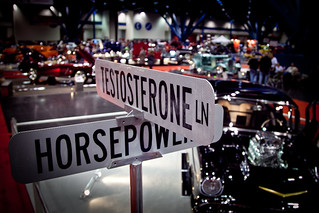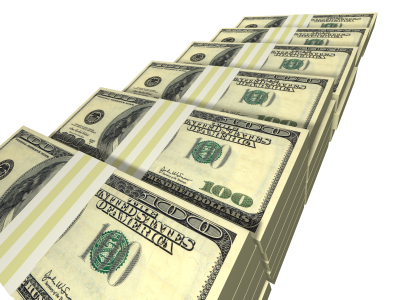Do women truly need to supplement testosterone levels?
 Testosterone is a hot topic for men. But evidently, it’s an equal opportunity hormone, designed to boost low libido one woman, one cream application at a time. But what is it about testosterone that makes its use in menopausal women questionable if downright unhealthy?
Testosterone is a hot topic for men. But evidently, it’s an equal opportunity hormone, designed to boost low libido one woman, one cream application at a time. But what is it about testosterone that makes its use in menopausal women questionable if downright unhealthy?
The levels, that’s what.
I’ve written about testosterone before and you can look up the archives via this link. The upshot is that for both men and women, testosterone therapy is oversold as a panacea for just about everything from distress about aging to sexual desire to bone, heart and mental health. Wow! Quite the Fountain, no?!
However, while transdermal (through the skin) testosterone is preferable (it avoids metabolism by the liver and promotes steady blood levels of the hormone), the patch has gotten the boot both in this country and overseas, and implants are no longer available. LibiGel, a topical cream was also denied market entry by the FDA. The result has been frequent prescribing of compounded testosterone in both genders.
Mind you, Allopathic practitioners for the most part shun compounded products, claiming safety issues and the lack of regulation. And in some cases, they are absolutely correct (do you recall the New England compounding crisis?). More recently, the North American Menopause Society (NAMS) issued a press release knocking compounded prescriptions, noting that they may deliver excess levels of testosterone thereby “producing untoward effects.” For example, too much testosterone may lead to depression, promote unwanted acne and hair growth, enlarge the clitoris, deepen the voice, produce aggression and boost cholesterol levels. The answer? According to NAMS, the answer may lie in an Australian formulation — AndroFeme — that was recently tested in seven healthy, postmenopausal women.
In a study published ahead of print in the journal Menopause, the researchers report that this 1% testosterone cream, applied 5 mg daily for 21 days and then immediately thereafter, 10 mg daily for 21 days, resulted in peak blood levels of testosterone that were in the normal range; while the 5 mg dose raised blood levels only slightly above normal, the 10 mg dose raised it to a higher level (double the upper limit). Moreover, apparently neither dose level had an impact on estrogen levels or sex-hormone binding globulin, a protein that binds to the sex hormones and determines how much of them remain available.
So, what’s the lowdown? Theoretically, the Australians have arrived at an acceptable testosterone dose for women with a safe delivery system. They report that it was well tolerated but did not qualify what this means. If you read the NAMS press release, the organization is basically promoting a pharmaceutical grade product over compounded agents even though the study was conducted in a mere seven women. Seven women do not a conclusion make…ever.
How much testosterone is too much for women after menopause? As of today, any amount might be too much until more data are available. Buyer, beware. T is for thwart and the time to put low T to bedis now.
Read MoreGuyside: Getting testy about testosterone
 There’s no doubt that men think about the effects of aging on their bodies. And if there were, a viewing of ads for hair colouring, hair thickening agents, or erectile dysfunction drugs would quickly convince you. You could be a new man!
There’s no doubt that men think about the effects of aging on their bodies. And if there were, a viewing of ads for hair colouring, hair thickening agents, or erectile dysfunction drugs would quickly convince you. You could be a new man!
And as regular Flashfree readers will know, one of the things that’s been touted as a solution to the woes of the aging male is testosterone replacement therapy.
The basic idea is that men may have a condition that’s referred to as “Low T.” And so a gel, a patch, a tablet or an injection may bring you back to a more energetic, athletic, virile condition. The pitch has been made more and more convincingly, by all accounts: an Australian research team found that the sales of testsosterone treatments went from $150 million in 2001 to $1.8 billion in 2012.
That’s a 1200% increase. The Australian research indicated that the amount of testosterone being prescribed far outstripped the incidence of “male menopause” or andropause. So what’s going on? Oh, I suspect there’s a generous helping of vanity involved here.
But if it were simply a matter of making men feel better about themselves, it would just be a waste of money. A growing body of research evidence is suggesting that treating Low T may increase the risk of cardiac events. The most recent, an article from the open-access journal PLOS ONE, suggests a substantial increase in the risk of myocardial infarction — what we normally refer to as a heart attack — with the use of testosterone, for men under and over 65 years of age.
I’m sure there are men with diagnostic criteria that would make testosterone therapy an appropriate choice, with a careful calculation of the risks and benefits. But if my hair’s getting a little thin, if I’m not feeling as “macho” as I once was — do I really want to be using a hormone supplement that could put me at risk of a heart attack?
It’s very easy to succumb to marketing-based pitches that appeal to what we think we need as men. But it’s important for us to not jump at those pitches without thinking about the risks and the benefits carefully.
There was a rush to use estrogen and progesterone to help women with symptoms of menopause several years ago, and then a panic when those therapies were associated with increased cardiac symptoms.
I’m no doctor, and I’m certainly not saying that nobody should be using hormones in this way. But I do think that we should think through ALL of our medical decisions and ensure we’re taking the risks seriously.
(photo: CC-licenced image by Flickr user Ed Schipul)
Read MoreWednesday Bubble: Depressed? It may be high testosterone
As I’ve written previously, depression and hormonal imbalance go hand in hand as much as love and marriage, babies and carriages, and yin and yang. As many as 40% of women are affected by depression during menopause, but there are other factors that come into play, including gender (women are 1.5 to 3 times likelier than men to report a lifetime history of depression), stress, family life, general health issues, a lack of exercise and genetics. Moreover, research has shown that how women perceive the effect of menopause and its symptoms on their physical health can significantly affect whether or not they develop depression at the start of the ‘pause.
I’ve got one more factor to add to the mix: testosterone. Findings reported at this week’s International Federation of Fertility Societies/American Society for Reproductive Medicine meeting suggest that when it comes to depression in menopause, high testosterone levels may be at-play, at least in Caucasian women.
Among 400 women studied over 14 years (who were 35 to 47 when the study began), 76% had a history of depression. Still, researchers say that this history did not appear to affect the relationship between high testosterone levels and depression scores; in fact, Caucasian women with the highest testosterone levels were 27% more likely to have depression than women who had the lowest levels. In fact, when considered in totality, each jump to the next measure of testosterone levels (four in all) increased the risk of depression by 14%.
Importantly, the researchers did not see the same increase in depression among African-American women. Rather, African-American women with the highest testosterone levels were 26% less like to have depression.
There is no indication of the reasons why testosterone affects mood in Caucasian versus African-American women. However, it’s important that we have another piece of the puzzle. Take note: if testosterone patches ever make it to market in the U.S., women with preexisting depression may want to step back before hopping on that bandwagon.
Read MoreGot Low T? Low E? What?!!!
Do you recall the Low T campaign, you know, the one where Daryl Moose Johnston is able to ‘get back in the game’ once he starts correcting his testosterone deficiency? Well, not only is Darryl suffering from low testosterone levels but newly published research suggests that men like Darryl may also be suffering from ‘Low E,’ as in estrogen. Can you hear the ‘cha ching’ in the background yet?
As researchers continue to unravel the mysteries of how declining testosterone affects men, they’ve discovered that testosterone has a partner in crime: estrogen. In fact, not only does it appear that different men need different levels of testosterone in their body to maintain their lean/fat mass balance, muscle strength and size, but as testosterone levels begin to decline as men age, so does estrogen and with it, men may be left with the accumulating middle tire that many of us women are quite accustomed to. Moreover, findings from the study mentioned above show that both testosterone and estrogen regulate sexual function in men.
A bit of context here just so we are on the same page. This recent bit of information comes from a study of 198 men between the age of 20 and 50 who were healthy and had normal testosterone levels. In men, ‘normal’ equates to ranges that decline as they age. The estrogen component is a bit trickier to explain; more than 80% of circulating natural estrogen in a man’s body comes from the conversion of testosterone. So, as testosterone levels start to decrease, so do estrogen levels. And, when some of the men in the study were provided with a steroid agent that blocks that conversion, they experienced an increase in body fat percentage. Another important point was that fat began to accumulate at testosterone levels well above the levels that would affect muscle strength and size, i.e. 300 to 350 ng. Finally, in both groups of men — those who received various levels of testosterone and those who received various levels of testosterone and a hormone to prevent conversion to estrogen — declines in desire and erectile function similarly declined as testosterone did.
Back in March, I wrote a post about hormone deficiency in men and following the money trail. Mind you, declining levels of testosterone (and by default, estrogen) can have significant consequences for some men that go well beyond sexual dysfunction or a bit of body fat. Consequently, by conducting this research, scientists will be better able to help men whose testosterone levels fall below a certain point, although estrogen replacement comes with its own set of problems (enlarged breasts anyone?). Aside from the obvious benefits, such as a better strategy for interpreting testosterone levels, identifying any negative consequences that might be associated with them and treating them accordingly, one has to wonder if the conversion of testosterone to estradiol or lack thereof, is a harbinger for a future campaign.
Got low T? Got Low E?
Need I say more?
Read More
Still feeling like a shadow of your former self?
Must be “Low T,” right?
Low T is a global problem of epic proportions. In fact, UK researchers are reporting that testosterone prescribing has reached epidemic proportions, with an increase in prescriptions by almost 90% between the years 2001 and 2010. Moreover, the majority of these prescriptions have not been for an established hypogonadism (a decline in the functional ability of the testes to produce ample amounts of testosterone. This can lead to erectile dysfunction, low libido and a low sex drive. Aside from sexual dysfunction, hypogonadism can also cause depression, lethargy and fatigue. And yet, the most recent statistics from the Urology Care Foundation suggest that low T is a problem mostly affecting men 60 and above. In the UK study, only 6.3% of men had definite hypogonadism. So, what gives?
Money.
A few years ago, the pharmaceutical industry jumped on the male menopause wagon and the current campaign is a doozie. The condition? Low T, which is better known as low testosterone, andropause or the commonly used misnomer, “male menopause.” In fact, you can take a simple quiz to learn if you have Low T and if you need to speak to your doctor.
I’ve written about male menopause and have also directed readers to data that shows that it may not be all that it’s cracked up to be. Is it irritable male syndrome? Or is it another marketing tool to sell drugs to unsuspecting men who are aging and losing their virility?
Truly, if you are feeling like a shadow of your former self, there may be other things at play than testosterone. You might want to speak to your healthcare practitioner before jumping on the Low T wagon. Too much testosterone can lead to heart disease and negatively affect the prostate gland.
The medical community remains unconvinced about the condition and the need to treat it. In fact, that might be why, in 2011, University of Pennsylvania researchers started putting it to the test with the T Trial, which may solve this question once and for all.
Read More








